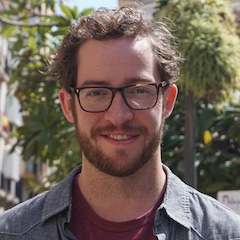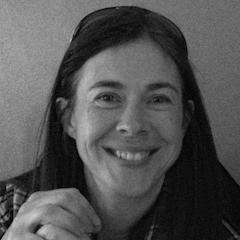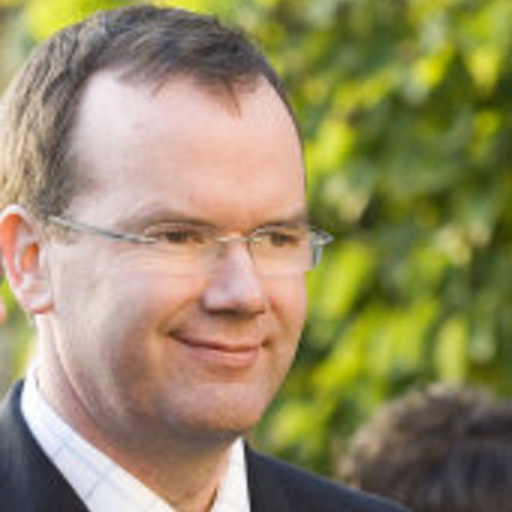The RSLondon community is run/managed by a committee of volunteers based at a range of different institutions within the region. Our current committee members are:
 Maria Broadbridge University of Reading | Ilektra Christidi UCL |  Jeremy Cohen Imperial College London | |
 James DesLauriers University of Westminster |  James Graham King’s College London |  Tom Roberts NHS / King’s College London | |
 Amy Strange The Francis Crick Institute |  Adam Witney St George’s University of London | ||
Maria Broadbridge, University of Reading
Maria is a Research Software Engineer in the Digital Research Computing Team at the University of Reading. She has a background in ocean modelling, oceanography, and meteorology. In her current role, she supports researchers and students in navigating research computing challenges. Her main focus is on delivering training, guiding staff and students in developing computational skills, and promoting effective practices in research software. Maria is also an active member of the UK RSE community and is the founder of the regional group RSE South (https://rsesouth.github.io/).
Ilektra Christidi, UCL
Ilektra is a Senior Research Software Developer within the Research Software Development Group in UCL’s Centre for Advanced Research Computing.
Jeremy Cohen, Imperial College London
Jeremy Cohen is an Advanced Research Fellow in the Department of Computing and Director of Research Software Engineering Strategy at Imperial College London. He has a Computer Science background and his work focuses on supporting and undertaking the development of research software across multidisciplinary collaborations, RSE community building, training and the development of policy and models for research software engineering activities. Jeremy is an EPSRC RSE Fellow. He started and currently leads Imperial’s local research software community and the RSLondon regional research software community.
James DesLauriers, University of Westminster
I am a Lecturer in the University of Westminster School of Computer Science & Engineering and a member of the Research Centre for Parallel Computing. My research interests are focused on applying cloud orchestration solutions to a range of topics in various fields, including securing cloud-enabled applications in healthcare, deploying digital twins to enable Manufacturing-as-a-Service, and launching science gateways for Space Science research.
James Graham, King’s College London
James is Head of Research Software Engineering at King’s College London and leads a small but growing group of RSEs who work across all faculties, based in the central e-Research directorate. Alongside the team’s core role in the development of research software, he has a particular interest in RSE career pathways, training and translational research. Before joining King’s, James was part of the central RSE group at the University of Southampton and the Software Sustainability Institute, during which time he was elected to the board of trustees of the Society of Research Software Engineering for a two-year term.
Tom Roberts, NHS / King’s College London
Tom is an imaging scientist specialising in MR imaging of foetuses inside the womb of pregnant mothers. His research is particularly focussed on developing new methods for studying the anatomy and blood flow of the foetal heart. Tom works closely with the radiologists and foetal cardiologists at St Thomas’ Hospital and the Evelina Children’s Hospital to turn cutting-edge research software into tools which can be used routinely by clinicians.
Amy Strange, The Francis Crick Institute
Amy is the Head of Software Engineering and AI at the Crick, she joined the institute 5 years ago with an extensive industry and commercial background, and works with a committed and capable team of research software and machine learning engineers supporting Crick researchers with computational solutions to a wide range of biomedical data problems. The team also has a mandate to educate, train and support researchers and PHD students across the organisation, providing computational training resources and best practice support.
Adam Witney, St George’s University of London
Adam’s research interests span the fields of computational analysis of complex datasets, such as next generation sequencing (NGS) and microarray data, and the design and implementation of biological databases. Currently, Adam plays a central role in multiple collaborative projects and activities across several research centres and institutes within St George’s, University of London and St George’s Healthcare NHS Trust, as well as externally. Specifically, Adam is developing computational pipelines for the implementation of NGS analysis within the context of clinical microbiology, and has applied these to various pathogens such as Mycobacterium tuberculosis and Pseudomonas aeruginosa. He is also involved in various research projects investigating the genomics of Neisseria gonorrhoea and Klebsiella pneumoniae in clinical samples.